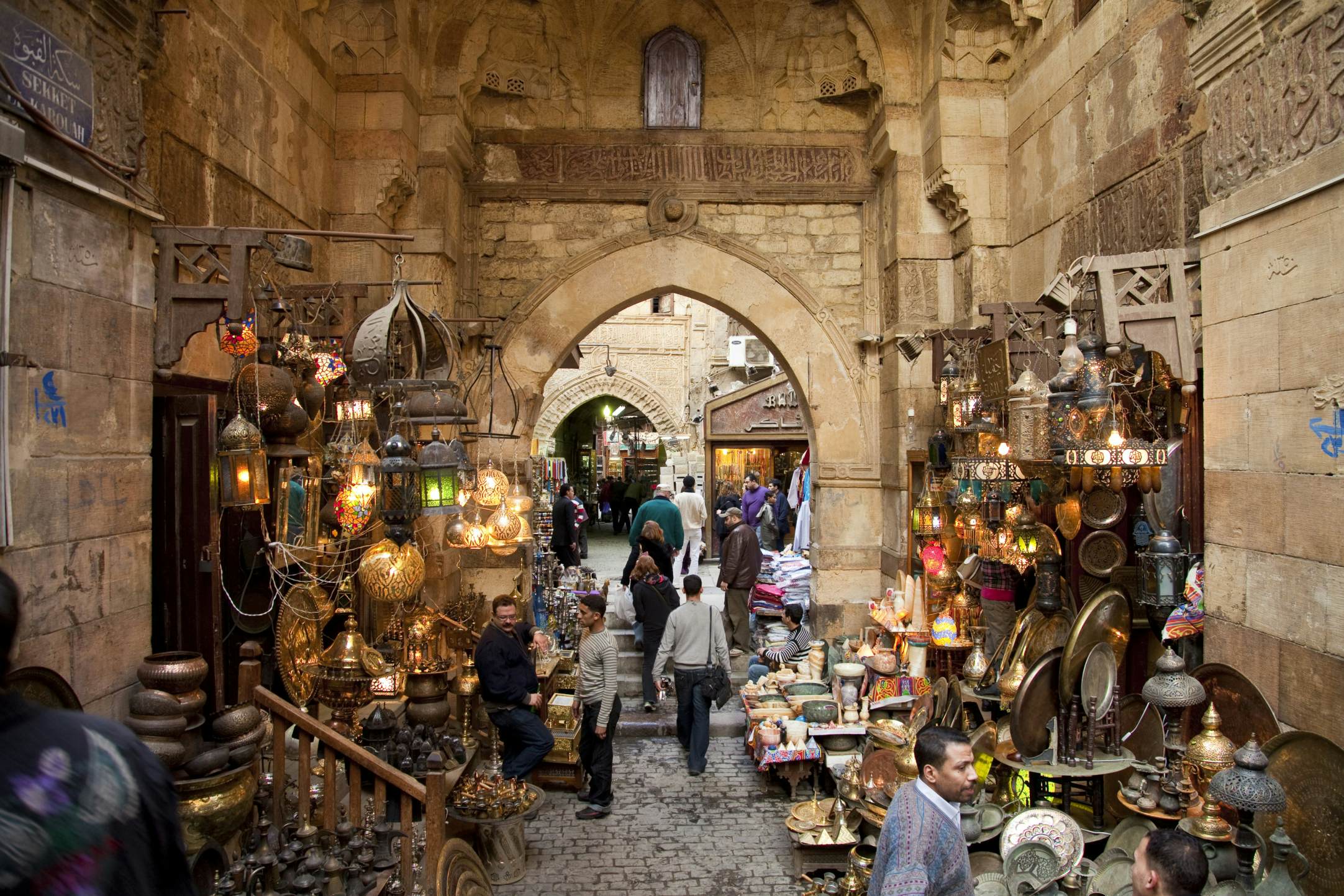Islamic Cairo refers to the historic core of the city of Cairo, Egypt, that was established during the Islamic period, from the 7th to the 19th centuries. It is home to some of the world's most iconic Islamic architectural landmarks and is considered one of the most important cultural and historical sites in the Islamic world.
Cairo was founded in 969 CE by the Fatimid Caliphate, which was a Shi'a Muslim dynasty that ruled over a vast empire stretching from North Africa to Arabia. The Fatimids made Cairo their capital and transformed it into a center of trade, scholarship, and Islamic culture. During their reign, Cairo grew rapidly and was filled with magnificent palaces, mosques, and public buildings. One of the most famous landmarks of Islamic Cairo is the Al-Azhar Mosque, which was built in the 10th century and is one of the oldest universities in the world. The mosque has played a significant role in the Islamic world as a center of learning and scholarship. Another iconic landmark is the Citadel of Cairo, which was built in the 12th century and served as the seat of power for many Islamic dynasties, including the Mamluks and the Ottomans. The citadel also houses several mosques and museums, including the famous Mosque of Muhammad Ali.Islamic Cairo was also a center of the Sufi movement, which emphasized spiritual experiences and direct encounters with God. Many Sufi orders established their headquarters in Cairo, and their teachings and practices continue to influence the Islamic world today.Today, Islamic Cairo remains an important cultural and historical site, attracting millions of visitors from around the world each year. Its rich history and architectural heritage continue to inspire scholars, artists, and architects, and it remains a testament to the enduring legacy of Islamic civilization.
Islamic Cairo has a rich history that spans many centuries, and during this time, it has seen many different Islamic dynasties rise and fall. Some of the most significant periods in Islamic Cairo's history include:
| The Fatimid Period (969-1171) |
The Fatimid Period (969-1171): This was the period when Cairo was founded, and it became the center of the Fatimid Caliphate. During this time, many important landmarks were constructed, including the Al-Azhar Mosque, the Fatimid Palace, and the Al-Hakim Mosque.
| The Ayyubid Period (1171-1250) |
The Ayyubid Period (1171-1250): This period saw the rise of the Ayyubid dynasty, which was founded by Salah al-Din, also known as Saladin. Salah al-Din was a famous Muslim warrior who fought against the Crusaders and captured Jerusalem. During his reign, he commissioned several important landmarks, including the Citadel of Cairo and the Mosque of Ibn Tulun.
 |
| The Mamluk Period (1250-1517) |
The Mamluk Period (1250-1517): The Mamluk dynasty was founded by soldiers who were originally brought to Egypt as slaves. They rose to power and established a powerful empire that lasted for over two centuries. During this time, many important landmarks were constructed, including the Mosque of Sultan Hassan, the Mosque of Al-Rifai, and the Khan el-Khalili bazaar.
 |
| The Ottoman Period (1517-1798) |
The Ottoman Period (1517-1798): The Ottoman Empire conquered Egypt in the 16th century and ruled over it for several centuries. During this time, many important landmarks were constructed, including the Mosque of Muhammad Ali, which is located within the Citadel of Cairo.
| The Modern Period (1798-present) |
Today, Islamic Cairo is a vibrant neighborhood that is home to many important landmarks, including mosques, madrassas (Islamic schools), and museums. It is also home to a vibrant market district, where visitors can find traditional goods and souvenirs. Islamic Cairo is a testament to the enduring legacy of Islamic civilization and remains an important cultural and historical site in the Islamic world.
Islamic Cairo is known for its rich architectural heritage, which includes some of the most iconic Islamic landmarks in the world. These landmarks include:
 |
| Al-Azhar Mosque |
Al-Azhar Mosque: Founded in the 10th century, this mosque is one of the oldest universities in the world and has played an important role in Islamic scholarship and education.
 |
| Mosque of Ibn Tulun |
 |
| Mosque of Sultan Hassan |
Mosque of Sultan Hassan: Built in the 14th century, this mosque is known for its massive size and intricate decoration. It was built during the Mamluk period and is considered one of the most impressive examples of Islamic architecture in the world.
 |
| Mosque of Muhammad Ali |
Mosque of Muhammad Ali: This mosque was built in the 19th century by the Ottoman ruler Muhammad Ali and is located within the Citadel of Cairo. It is known for its distinctive domes and minarets and is considered one of the most important landmarks in Islamic Cairo.
 |
| Khan el-Khalili |
Khan el-Khalili: This is a historic market district located in the heart of Islamic Cairo. It dates back to the 14th century and is known for its traditional crafts, including textiles, jewelry, and pottery.
In addition to these landmarks, Islamic Cairo is home to many other important sites, including the Al-Hussein Mosque, the Al-Hakim Mosque, and the Bab Zuweila gate. The neighborhood is also known for its historic houses and buildings, many of which have been restored and converted into museums or cultural centers. Overall, Islamic Cairo is a unique and vibrant neighborhood that offers a glimpse into the rich history and culture of the Islamic world.




0 Comments